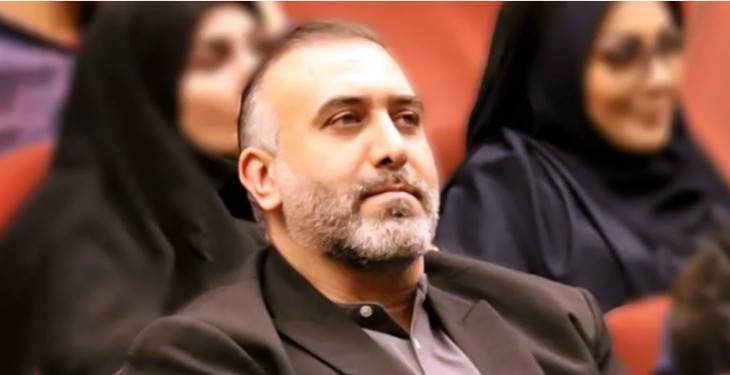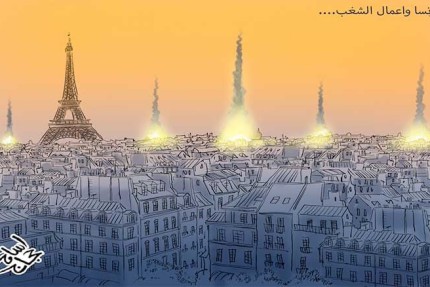By Mohammad Ali Senoobari Director, Newvision Institute for Strategic and Media Studies
Iran’s Sources of Power Without Relying on Weapons of Mass Destruction

In a world where values shift according to interests and international laws are openly violated without consequence, Iran steps onto the regional and global stage with a fundamentally different logic.
This approach is not built solely on geopolitical calculations and pragmatism, but anchored in a constant standard: a commitment to ethics — not as a temporary slogan, but as an inseparable part of the decision-making process.
The recent 12-day war between Iran and the Zionist regime was a clear example of this difference in the philosophy of war and its rules. While Tel Aviv indiscriminately targeted hospitals, schools, and densely populated areas to inflict maximum civilian casualties, Iran — despite enduring aggression — limited its retaliation to enemy military bases and air facilities. Even when striking the occupier’s economic infrastructure, Iran acted only in direct response, despite such targets being both accessible and deeply damaging to the enemy.
This approach is not a sign of limited military capacity, but a continuation of a moral policy Iran has upheld since the very first days of the 1979 Islamic Revolution. From the start, Iran rejected the principle that “the end justifies the means” — a foundation of many Western and regional powers’ politics. In Tehran’s view, wars are not launched to achieve victory at any cost; they must pursue legitimate objectives within strict ethical boundaries, rooted in Islamic teachings and religious authority.
A defining example of this path is the explicit fatwa by Iran’s Supreme Leader, Ayatollah Seyyed Ali Khamenei, forbidding the use of weapons of mass destruction, especially nuclear arms. This ruling came at a time when global and regional conditions were pushing Iran toward militarizing its nuclear program. Yet, despite having the technology and infrastructure to build a bomb — and even after repeated Israeli and U.S. attacks on its nuclear facilities — Tehran never used this capability as an excuse to produce such weapons.
This choice has been costly. In a world where “deterrence” is defined by the threat of total annihilation, Iran has faced years of complex sanctions, cyberattacks, and sabotage operations. Still, it has refused to abandon its principles, instead investing in conventional military strength, domestic cohesion, and strategic capabilities.
Even at the height of conflict, Iran refrains from using the rhetoric of blind vengeance or destructive slogans. Its stated goal is the “liberation of Jerusalem,” not simply the destruction of the occupying regime. This marks a qualitative difference in war philosophy: while the Zionist regime seeks the complete elimination of its opponent, Iran focuses on awakening nations, liberating lands, and reviving the Palestinian cause — without compromising its own principles.
Even adversaries have been forced to acknowledge this reality. The joint U.S.–Israeli attack on Iran’s facilities, launched in the middle of nuclear negotiations that Tehran entered in good faith, revealed who abides by the rules — and who breaks them. As senior IRGC commander Mohammad Reza Naghdi put it: victory is not measured by the amount of blood spilled, but by the extent to which principles are upheld in the midst of war.
This ethical approach extends beyond dealings with enemies. In relations with friends and allies, Iran practices “fair partnership,” not dependency. Unlike major powers that use aid as a tool of domination, Tehran respects the sovereignty of its partners and does not force them to fully adopt its agenda. This respect for independence has allowed allies — from Lebanon to Yemen and Iraq — to maintain their own political and ideological identities, even in close cooperation.
Against its enemies, Iran balances firmness with discipline. While it responds to attacks and reserves the right to strategic retaliation, it still follows humanitarian rules even in the harshest conditions. In contrast, the U.S. and Israel routinely target civilians and use blockades to starve populations into submission.
This moral contrast has sparked questions inside Iran: can one adhere to such a framework in the face of an unrestrained enemy? Tehran’s answer is clear: adherence to principles is itself a form of resistance. For Iran, putting “justice” at the heart of politics — even when costly in the short term — is the only path to true victory in the long run.
Iran’s policy is rooted in religious teachings and a deep civilizational outlook, one that insists the future cannot be built by destroying the present. A nation seeking to liberate Jerusalem cannot pave that path through mass killing. This is why Iran is active both on the battlefield and in shaping a new global discourse on “honorable conflict management.”
This approach has resonated with global public opinion, especially as outrage over Israeli actions and U.S. aggression grows. The scenes of the recent war — showing Iran’s precision strikes and deliberate avoidance of civilian targets — offered a different image of war: “We can, but we choose not to be like the enemy.”
In this framework, Iran’s victory is not measured solely by military achievements, but by its ability to preserve its value system even in the darkest moments. Such steadfastness is the condition for any legitimate victory; a power that loses its moral compass loses the legitimacy of its success.
Since the Islamic Revolution, arrogant powers have sought to portray Iran as an irrational actor and a threat to regional stability. Yet, field experience has repeatedly proven the opposite: Tehran acts with more balance than its enemies and adheres more closely to international law — even as those same enemies openly violate it.
Iran’s experience shows that power and morality, pragmatism and principle, can be balanced. The Islamic Republic does not claim perfection, but it has set itself a high standard and refuses to descend into impulsive reactions or empty slogans.
In an era of collapsing values, the Islamic Republic stands as one of the few examples treating political ethics as a strategic necessity, not a decorative luxury. Though this path can be costly and challenging, it builds a lasting historical foundation — one that does not vanish with changing circumstances or the silencing of the guns.
By Mohammad Ali Senoobari
Director, Newvision Institute for Strategic and Media StudiesBy Mohammad Ali Senoobari
Comment
- Donald Trump is trying to impose a new world order.”
- Since the WWII, Europe has been a US Colony
- Trump is Following Washington national politics that were used prior to the WW2
- Trump’s Strategy about Venezuela is Based on James Monroe’s Doctrine
- “Somaliland”, A New US and Zionist regime project: A Unique and Remarkable Geographical Position of the Region
- Donald Trump is trying to impose a new world order.”
- Since the WWII, Europe has been a US Colony
- Trump is Following Washington national politics that were used prior to the WW2
- Trump’s Strategy about Venezuela is Based on James Monroe’s Doctrine
- “Somaliland”, A New US and Zionist regime project: A Unique and Remarkable Geographical Position of the Region
- Trump is Humiliating Europe: America’s Geopolitical Strategy has turned Violent
- video interview with Canadian author
- Trump Is After Reinfiltrating all the South American Countries
- Iraq: A New Power Geometry and the Future Challenges
- Donald Trump is a Complete Lunatic and a Narcissist
- We Do Not Wish to Transform Iraq into a Leverage for Targeting other Countries
- Donald Trump’s Public Support Has Reached its Minimum
- The Al-Shar regime is engaged in Killing the people of Syria instead of fighting Israel
- Donald Trump is trying to impose a new world order.”
- Since the WWII, Europe has been a US Colony
- Trump is Following Washington national politics that were used prior to the WW2
- Trump’s Strategy about Venezuela is Based on James Monroe’s Doctrine
- “Somaliland”, A New US and Zionist regime project: A Unique and Remarkable Geographical Position of the Region
- Trump is Humiliating Europe: America’s Geopolitical Strategy has turned Violent
- video interview with Canadian author
- Trump Is After Reinfiltrating all the South American Countries
- Iraq: A New Power Geometry and the Future Challenges
- Donald Trump is a Complete Lunatic and a Narcissist




